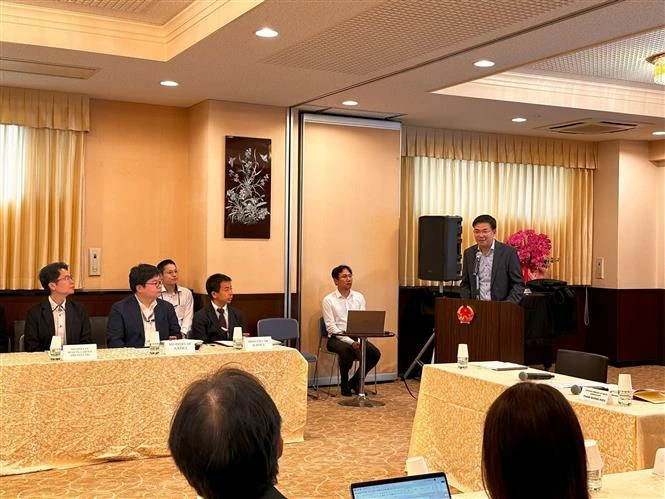WEB DESK: The Vietnamese Embassy in Japan on July 30 held a seminar on promoting support for Vietnamese workers in Japan to integrate into the local community, develop themselves and their careers, with the participation of representatives of relevant Japanese agencies, departments and localities.
There are currently nearly 600,000 Vietnamese living, studying, and working across 47 prefectures and cities of Japan
In his opening remarks, Vietnamese Ambassador Pham Quang Hieu said that the majority of Vietnamese people are hardworking, eager to learn, and live harmoniously and amicably. They have continuously improved their Japanese language skills to better themselves, support their families, and contribute to Japan’s economy, as well as enhancing the friendship between the two countries.
He noted that following the Japanese Government’s policy revision allowing talented foreign workers to reside and work for a long-term in Japan, the number of Vietnamese workers in the East Asian country is expected to continue rising in the near future.
Therefore, the embassy organised this event to exchange opinions with Japanese agencies, departments, sectors and localities on measures for Vietnamese workers to choose Japanese localities as a destination to work and live for a long term, become a part of the local society and effectively contribute to the socio-economic development of that locality, added Hieu.
Yasuhisa Arai, a representative from Japan’s Ministry of Justice, provided an overview of the new recruitment and training system announced by the government on June 21. He explained that under the new law, the technical apprentice training system, which involves skill transfer, will be fundamentally re-evaluated, while a new recruitment and training system will be established to develop and ensure human resources in fields where Japan is experiencing a labour shortage.
At the seminar, representatives from Yamanashi, Kanagawa, and Aichi prefectures briefed participants on their respective locality’s efforts to attract foreign labourers, particularly those from Vietnam.
Hieu emphasised the need to focus on Japanese language training, Japanese culture popularisation, and skill development for Vietnamese workers. He also highlighted the importance of continuous training activities, starting before their arrival in Japan and maintaining it throughout their time living and working in the country.


